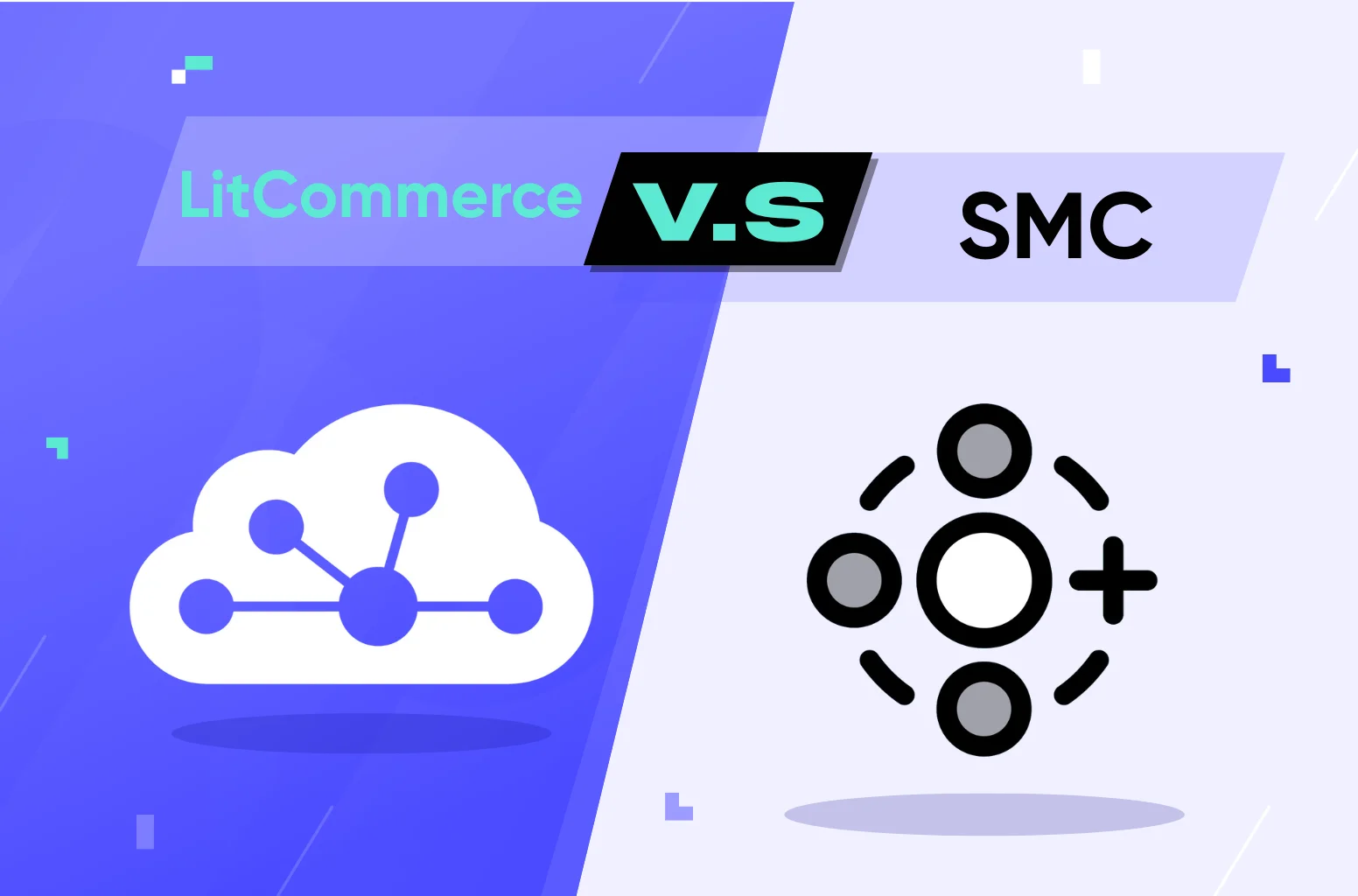Have you been searching for a multichannel selling tool on Google and noticed that LitCommerce and Shopify Marketplace Connect keep popping up? Well, that’s because they’re both quite good! Let’s dive in and look at LitCommerce vs Shopify Marketplace Connect comparison, in several criteria, to help you decide which is right for your multichannel business.
Round 2: Number of integrated marketplaces
Round 4: Bulk listing and template
Round 5: Inventory and order sync frequency
Round 6: Location-based inventory management
Round 10: Customization service
So, who are these guys?
That’s maybe the question you are having in mind. Well, wait no more. Let’s dive into the details on how they differ from each other. And see what is your best fit.
LitCommerce
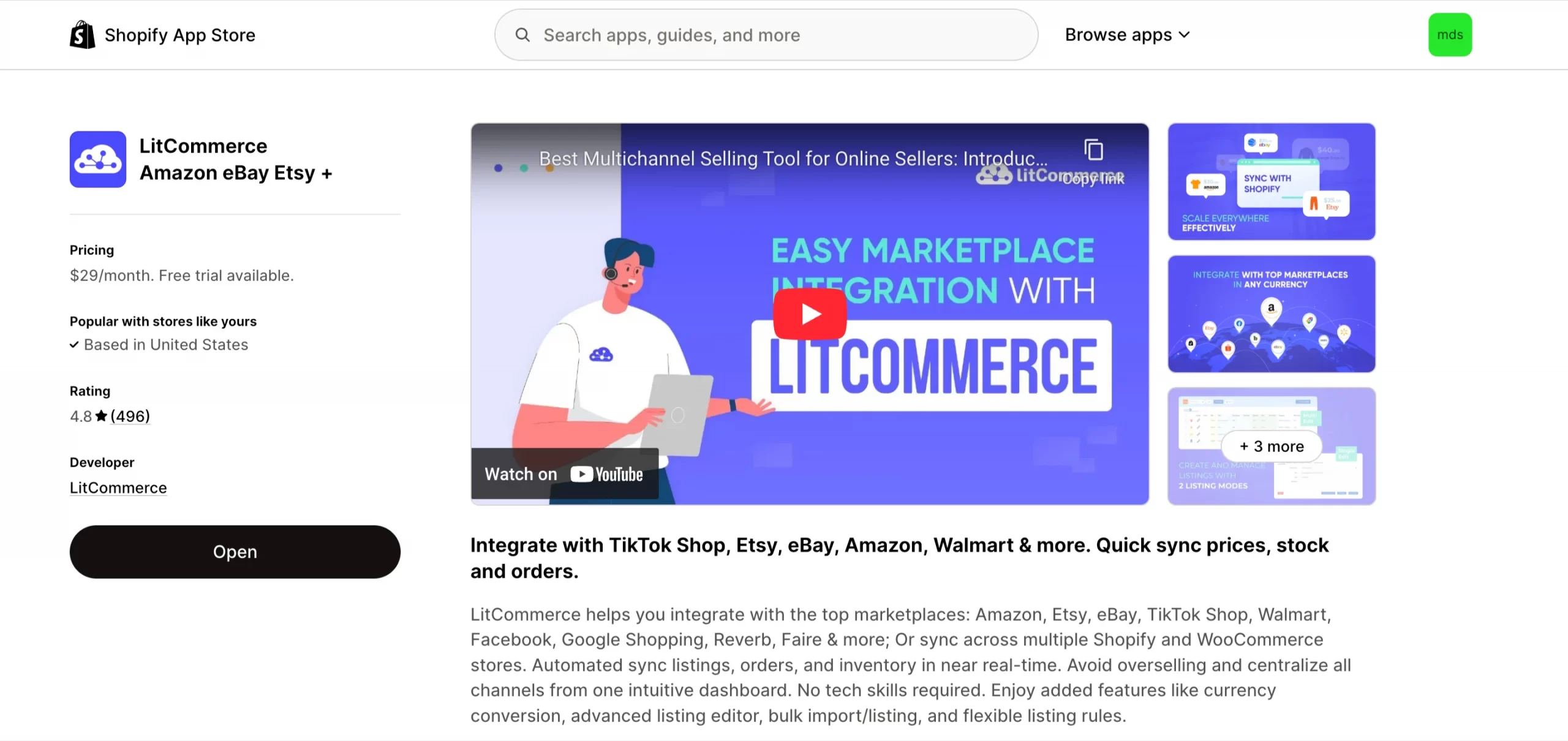
LitCommerce is probably a service you’ve heard of. Founded in 2020, it is a Vietnam-based, highly-rated multichannel selling tool (see their reviews on Trustpilot). They focus on powerful features while maintaining an intuitive and easy-to-use interface. The estimated monthly active users of LitCommerce are around 15,000.
On top of its multichannel listing capabilities, LitCommerce also offers a Product Feed Management Tool that helps sellers sync product data to top advertising channels like Google Shopping, Facebook, Pinterest, TikTok, and Bing.
Key features include smart category mapping, bulk feed rules, automated syncing, and built-in quality checks to ensure feeds meet each platform’s requirements. It’s designed for both beginners and advanced users who want to boost product visibility through paid and organic campaigns.
Shopify Marketplace Connect
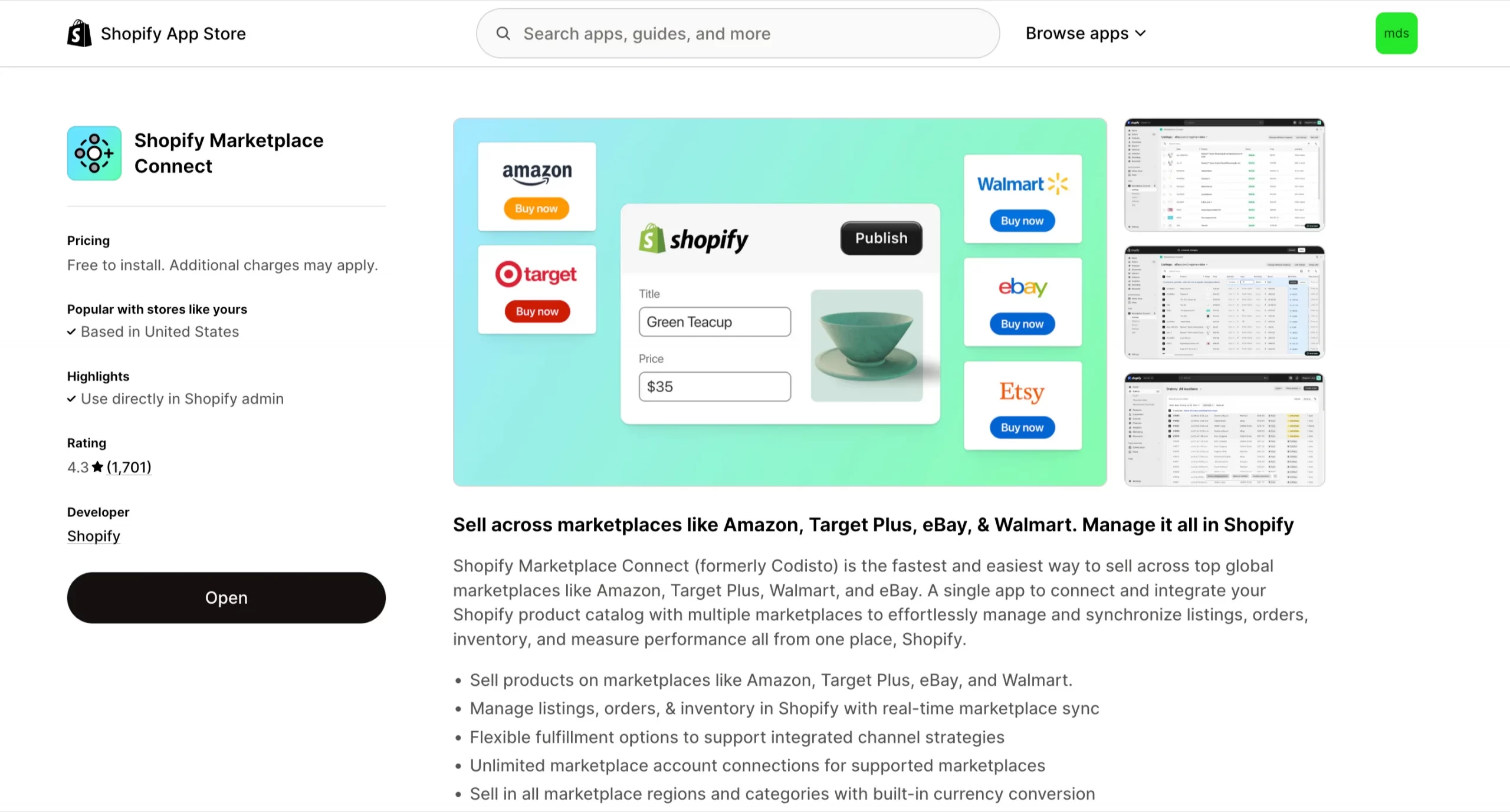
“Shopify Marketplace Connect” is Shopify’s official marketplace integration app (formerly known as Codisto) that enables you to link your Shopify store with major external marketplaces like Amazon, Walmart, eBay, Etsy, and Target Plus—and manage everything centrally from within your Shopify Admin.
Beyond basic syncing, Shopify Marketplace Connect offers advanced tools like bulk editing, product attribute mapping, and the ability to link existing marketplace listings to your Shopify catalog. You can connect multiple accounts for each marketplace, set up flexible fulfillment methods, and even localize pricing for international buyers. With 50 free synced orders per month and simple pay-as-you-grow pricing, it’s designed for sellers who want to expand their reach without adding complexity to their workflow.
LitCommerce vs Codisto: Head-to-head
Criteria | LitCommerce | Codisto |
Marketplace supported |
|
|
Syncing data & frequency | Every 15 minutes – Order – Image – Product SKU (for specific channels) | 2-30 minutes – Order |
Ease of use | ||
Bulk edit |  |  |
Currency conversion |  |  |
Location-based inventory management |  | |
Customer support | ||
Free trial |  |  |
Listings template |  |  |
Store activity log |  |  |
Customization service |  | |
Prices | Pay-per-marketplace connect and listing Up to 3 channels, 1,000 listings: $29/month or $243.60/year. Up to 3 channels, 2,000 listings: $44/month or $369.60/year. | Pay-per-quantity and order value 50 marketplace-synced orders per month for free. After that, 1% fee per additional synced-order, capped at $99/month |
Overall rating | ||
Round 1: Pricing
In the comparison of LitCommerce vs Shopify Marketplace Connect, the two providers have different pricing at the lower end. Though both offer a free trial, the allowances differ quite a bit.
Shopify Marketplace Connect
Shopify Marketplace Connect’s pricing model is based on orders. They limit you to 50 marketplace-synced orders per month for free. After that, you’ll pay a 1% fee per additional synced order, with the pricing capped at $99 per month. For us, it is quite a reasonable price for online businesses looking to scale up.
That said, Shopify Marketplace Connect is not a standalone tool — it works as a sales channel app inside the Shopify platform. To access and use it, you need to have at least one active Shopify subscription plan, such as:
- Basic ($39/month)
- Shopify ($105/month)
- Advanced ($399/month)
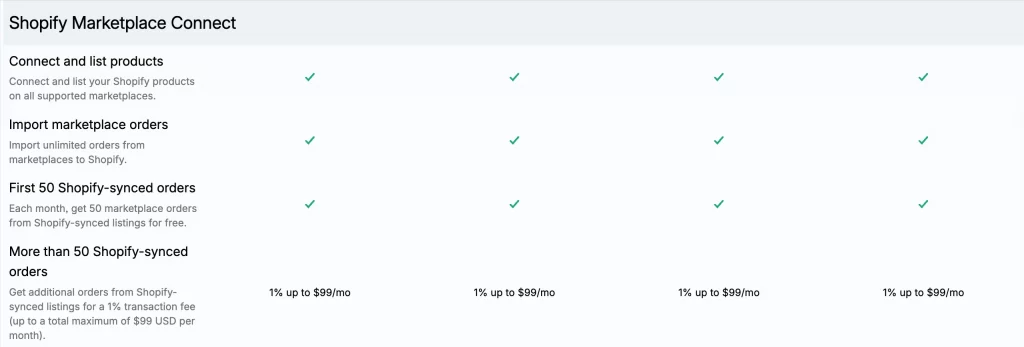
LitCommerce
On the contrary, LitCommerce offers a more robust pricing model based on the number of marketplaces and the number of listings you have.
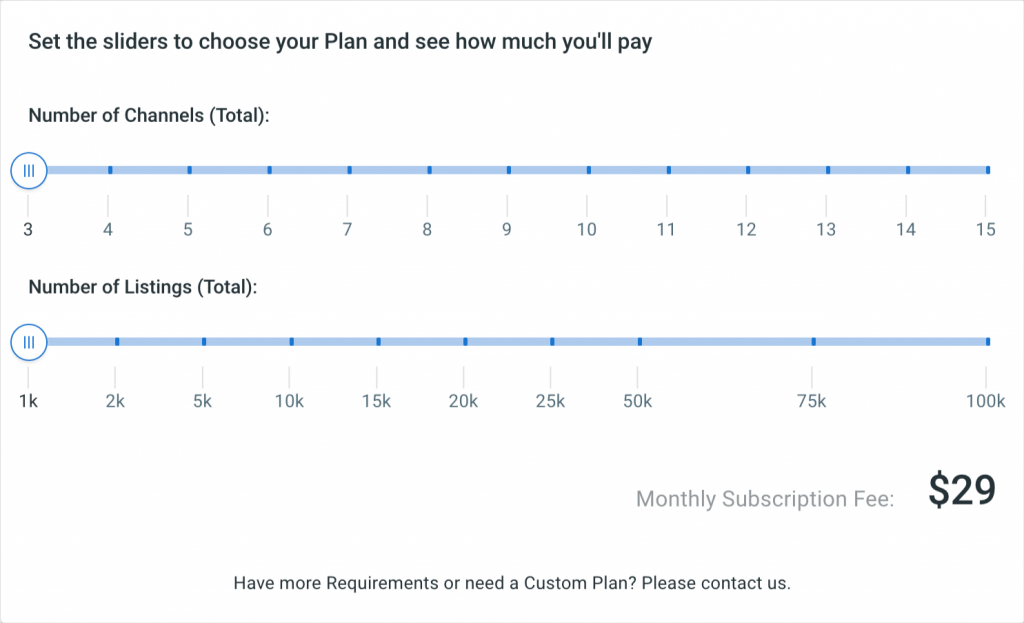
They have a 7-day FREE trial with the ability to:
- Connect multiple sales channels
- List products across channels
- Sync price and inventory
- Centralize order management in one channel
and a 20% off for the yearly plan.
Winner: If you’re already on Shopify and handling a low-to-moderate volume of marketplace orders, Shopify Marketplace Connect can be a cost-effective and convenient extension, especially with its free tier and capped variable fee structure. If you need greater control or operate across many listings and channels, LitCommerce offers transparent, scalable pricing and doesn’t require a Shopify subscription. Its tiered system allows you to match costs to your operational scale, with more predictable monthly expenses.
Round 2: Number of integrated marketplaces
This is one of the most basic features of a multichannel selling app.
Shopify Marketplace Connect
SMC allows connecting to only the following marketplaces:
- Amazon
- Walmart
- eBay
- Target+
- Etsy
One limitation of Shopify Marketplace Connect is it doesn’t allow connection to popular eCommerce sites like BigCommerce and WooCommerce. Just like other integration apps, it only supports integration pairs like Shopify-eBay or Shopify-Walmart, but not all platforms at a time.
LitCommerce
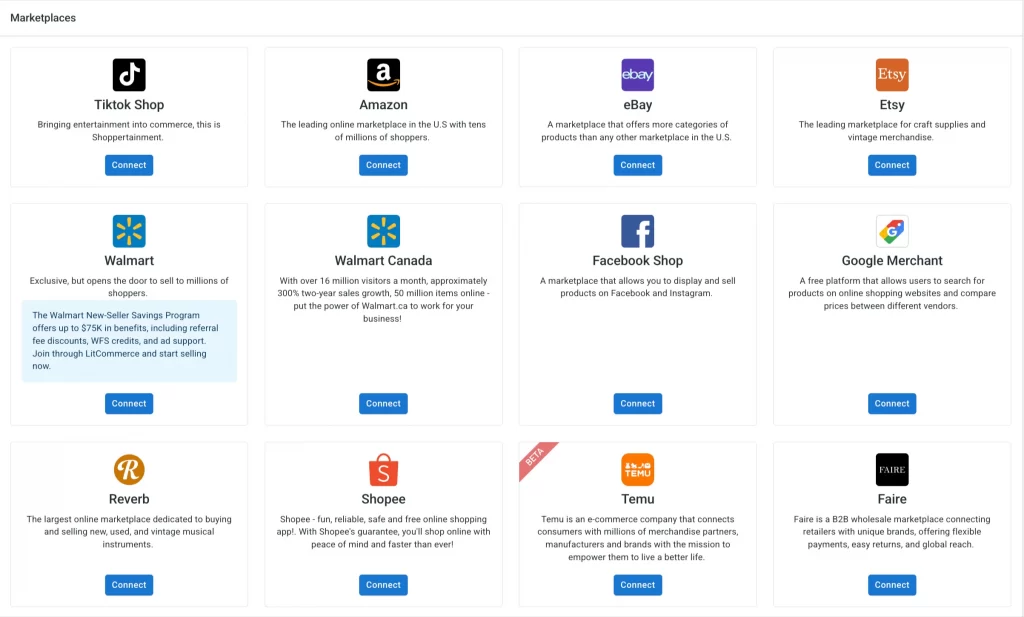
What about LitCommerce? Their integrated pool is much larger, including 20+ top eCommerce platforms and online marketplaces:
- Shopify
- Etsy
- eBay
- Amazon
- TikTok
- Walmart
- Google Merchant
- Facebook Shop
- Reverb
- Shopee
- Wix
- BigCommerce
- WooCommerce
- Squarespace
- Prestashop
- Temu
- Faire
- Square
Another point that makes LitCommerce stand out is the ability to integrate multiple channels at a time. Their users can sell on Etsy, Shopify, Amazon, and eBay with all inventory, and orders synced to a single place, not limited to Shopify admin, but can be Wix dashboard, or WooCommerce admin, etc. (depending on the platform you choose as the main store).
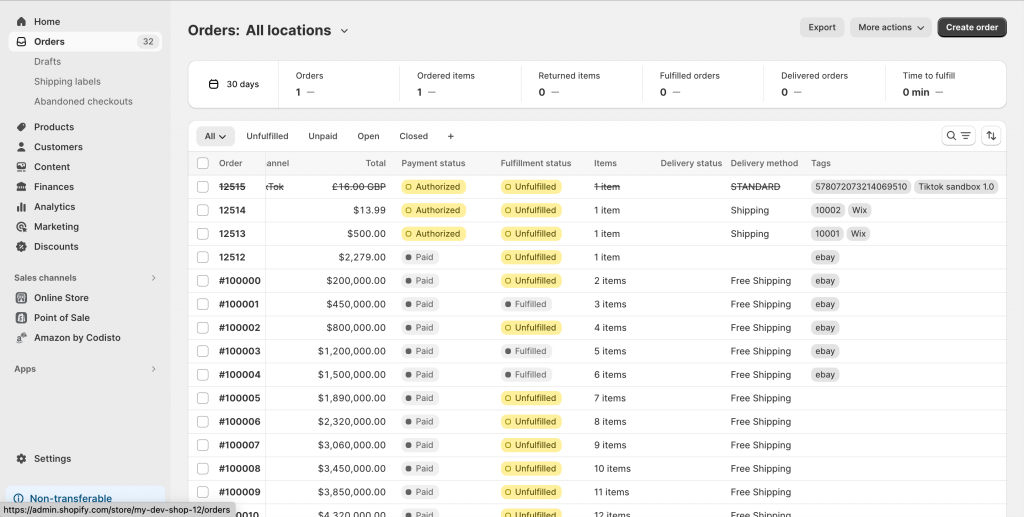
Winner: Well, 20 is four times greater than 5. So LitCommerce is clearly the winner here.
Round 3: Ease of use
Well, this is a close one, to begin with! LitCommerce and Shopify Marketplace Connect do a decent job with their usability. Both have a modern, clean, and user-friendly interface with minimal complications and allow you to manage all marketplaces right in the eCommerce platform.
Shopify Marketplace Connect
We recognize that many users appreciate the idea of managing marketplace listings, inventory, and orders from one centralized Shopify dashboard. For sellers already familiar with Shopify’s interface, the integration can feel convenient and somewhat intuitive. Tools like bulk listing, real-time inventory sync, and centralized order tracking can save time — once everything is properly configured.
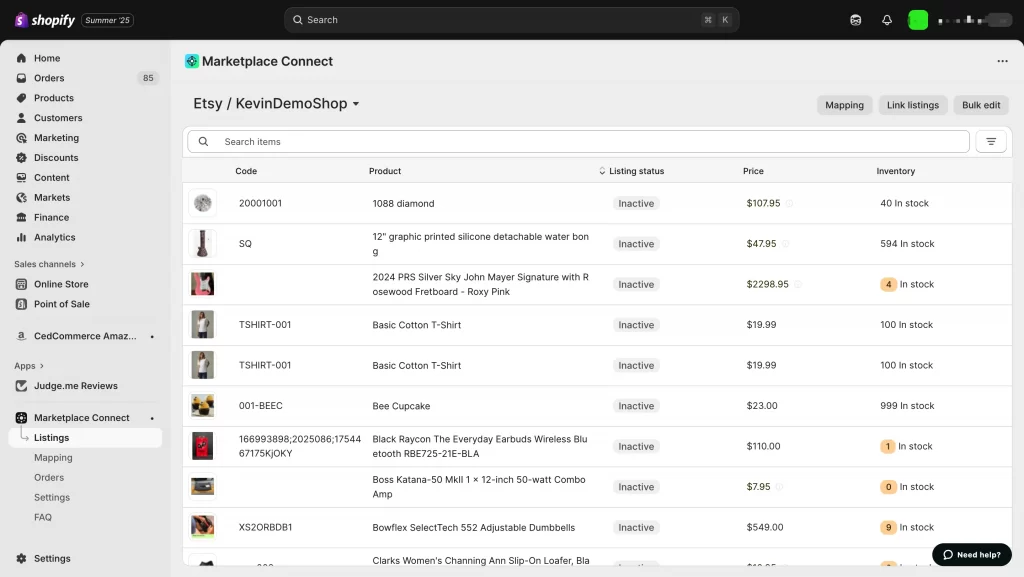
However, we’ve also seen that the initial setup process is often described as confusing and unintuitive, especially when connecting multiple marketplaces like Amazon, Walmart, and Etsy.
Each channel requires different settings and product mapping rules, which can make onboarding feel complex. According to several reviews, sellers often need multiple support interactions just to correctly set up categories and product details. On top of that, the app’s interface doesn’t always reflect the terminology or structure sellers are used to on their native marketplaces, adding an extra learning curve.
LitCommerce
Right from the LitCommerce dashboard, users can follow the starter guide, find suitable cases, and take action. Besides, LitCommerce always shows up a quick guide video along the way when you don’t know where and how to start. This clean and informative app interface is very helpful for both newbies and tech-savvy users.
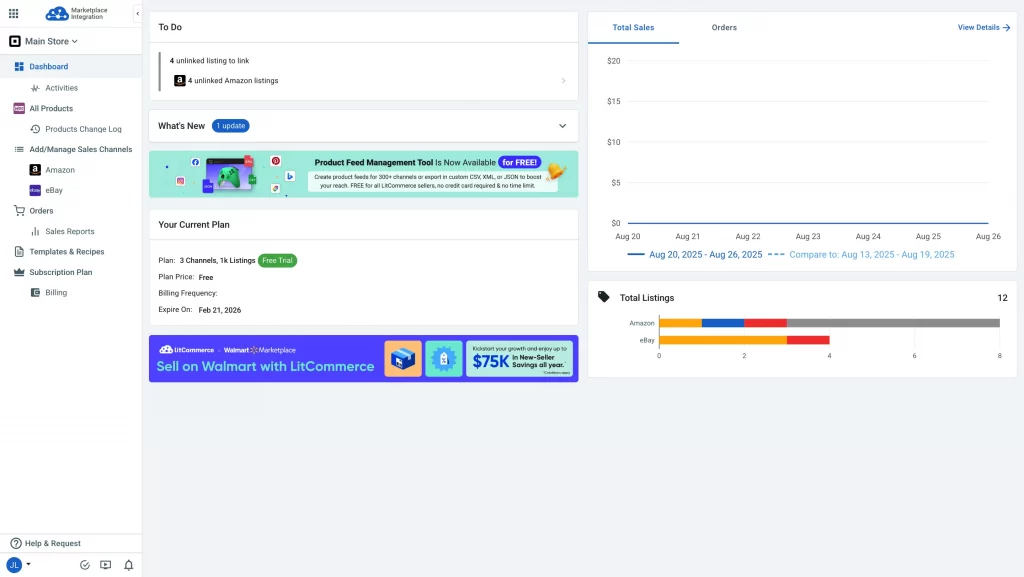
Even better, LitCommerce uses simple language and marketplace-customized terms, so if you’re already familiar with selling on marketplaces, you don’t need to learn new app terminology. This clean, informative, and familiar interface makes the experience smooth for both newbies and seasoned sellers.
Winner: Shopify Marketplace Connect feels intuitive for those already familiar with the Shopify platform, thanks to its native integration and familiar layout. LitCommerce, meanwhile, offers a clean, beginner-friendly interface with marketplace-specific terms, in-app guides, and quick-start videos that make it easy to use.
Round 4: Bulk listing and template
Both apps allow you to save time by bulk listing your products.
Shopify Marketplace Connect
With Shopify Marketplace Connect, you can set each of your fields to a constant value or with a formula.
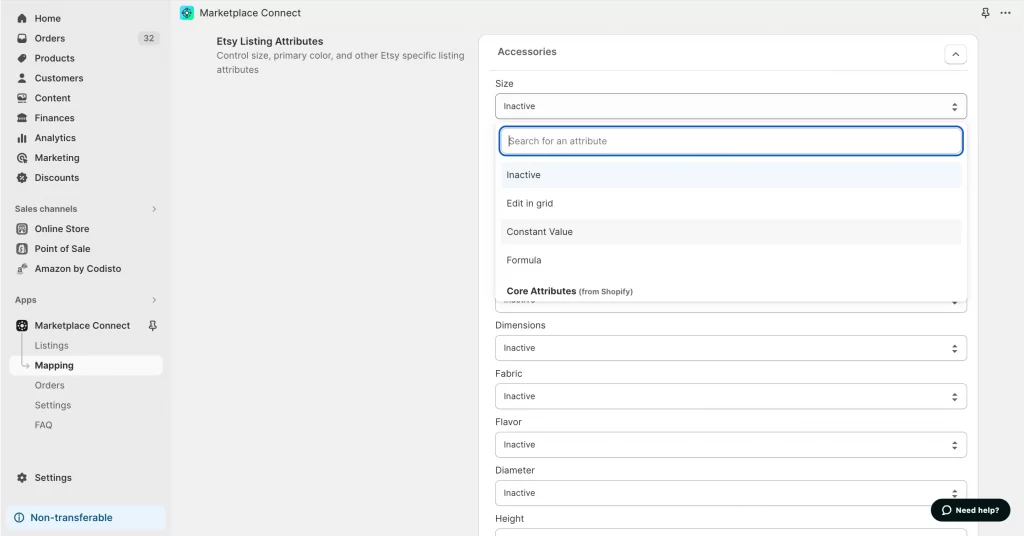
In our experience, Shopify Marketplace Connect provides a flexible but technical approach to listing management. Instead of offering ready-made templates, the tool relies on attribute mapping and Shopify metafields to control how product data appears on each marketplace. This gives us the ability to customize listing titles, descriptions, and other fields, but it also means the setup process can take time to understand and configure.
We can manage listings individually or in bulk, which is helpful for making broad updates across products. For marketplaces like eBay, the app allows us to save default settings, such as price adjustments, shipping policies, and return terms, that apply to future listings. These defaults offer a basic level of automation, though they’re not as straightforward as traditional templates.
LitCommerce
On the other hand, LitCommerce offers similar bulk listing capabilities but with a more streamlined and user-friendly interface. YouWe can manage listings across channels like Amazon, eBay, Etsy, and more — all from a single screen.
What stands out is the ability to edit key product details directly within the LitCommerce dashboard, including titles, descriptions, prices, and quantities. This saves us time switching between platforms or going back to Shopify just to make small changes. In addition to bulk editing, LitCommerce includes built-in templates and recipes, which allow us to apply consistent formatting and rules to multiple products at once. This makes it easier to standardize our listings and speed up the publishing process. YouWe can also import products, match them by SKU, and push them to marketplaces in just a few steps.
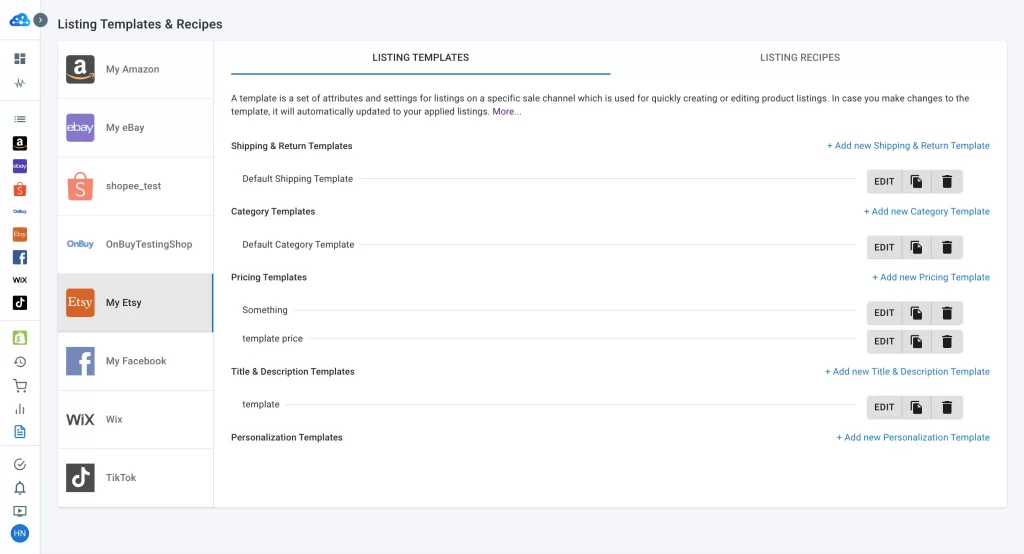
Winner: Both LitCommerce and Shopify Marketplace Connect offer strong bulk listing features suitable for managing large catalogs. However, LitCommerce provides more flexibility by allowing in-app editing of product details and offering built-in templates and recipes to speed up the process.
Round 5: Inventory and order sync frequency
Both LitCommerce vs Shopify Marketplace Connect offer listings and orders information sync. Ideally, these apps let you automatically sync products and orders between your eCommerce store and your sales channels in real time. However, this has not yet become a reality.
Don’t get us wrong. They DO publish updates immediately, but marketplaces (like Amazon, Etsy, etc.) can take some time to process them at their end.
Shopify Marketplace Connect
In fact, Shopify Marketplace Connect confirms these updates typically take between 2-30 minutes to be processed by the marketplace (Etsy, eBay, Amazon, etc). This includes inventory edits from Shopify to the marketplace (e.g., more goods received).
LitCommerce
LitCommerce confirms on the pricing plan that their inventory and price sync frequency is 15 minutes.
LitCommerce also provides a feature like that. It allows you to set a maximum and minimum stock level for your products on various marketplaces, which can avoid any overselling or stockout errors.

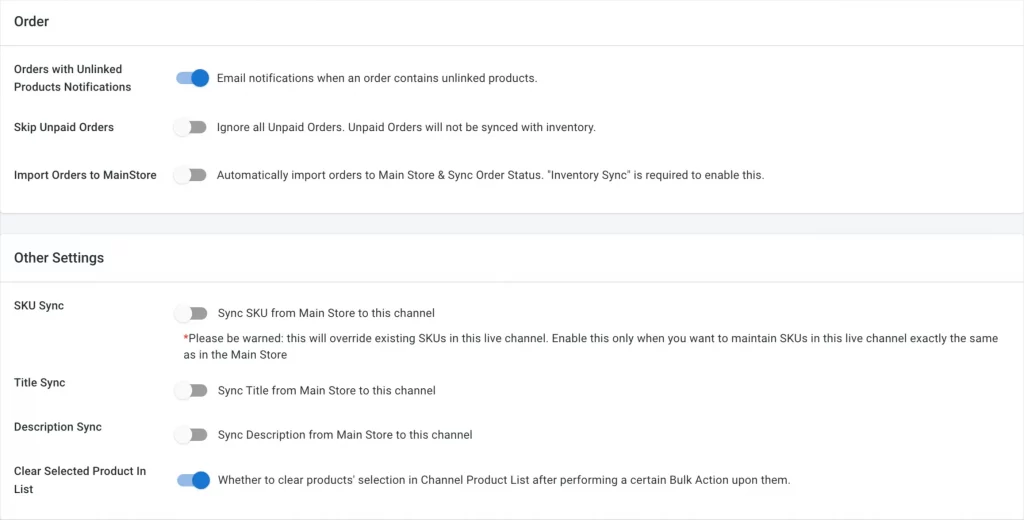
Winner: Litcommerce won this round by a close margin due to more frequent sync.
Round 6: Location-based inventory management
This is one of the important features for a multichannel listing tool.
Shopify Marketplace Connect
In our assessment, Shopify Marketplace Connect does offer some ability to assign inventory by location, but it’s relatively basic. Within the app, you can select which inventory location—from your existing Shopify locations—you want to use for each listing, either individually or in bulk, and even set a default location per regional marketplace.
That said, these location settings rely entirely on Shopify’s overall inventory location configuration. Shopify itself allows merchants to track stock across multiple locations and assign fulfillment priorities. However, it doesn’t offer advanced automation features, such as selecting the best location based on the buyer’s geography or automatically fulfilling portions of orders from different warehouses.
LitCommerce
When using Shopify multi-location inventory, LitCommerce allows us to specify which Shopify locations are synced during setup. If an order comes in and Shopify’s default logic selects a non-synced location, LitCommerce automatically reroutes fulfillment to a location we’ve opted into—helping avoid negative stock levels. For instance, if Shopify chooses a “Default” location that isn’t synced, LitCommerce will instead draw stock first from another available location like “Location1,” according to our priority settings.
Moreover, LitCommerce tries to split orders across locations in case of high-volume requests: for example, if a buyer orders 17 units and one location has only 15, LitCommerce will fulfill the remainder from the next prioritized location, reducing the chance of overselling. Even if total stock is insufficient, it still attempts to respect location priority to minimize stock inconsistencies.

Winner: This is a no-brainer. LitCommerce easily wins this round due to better location-based inventory management.
Round 7: Analytics & reports
Both services allow you to view data from all channels right from Shopify admin.
Shopify Marketplace Connect
When it comes to analytics, Shopify Marketplace Connect relies on Shopify’s native reporting tools rather than providing standalone, in-app analytics for sales across marketplaces.
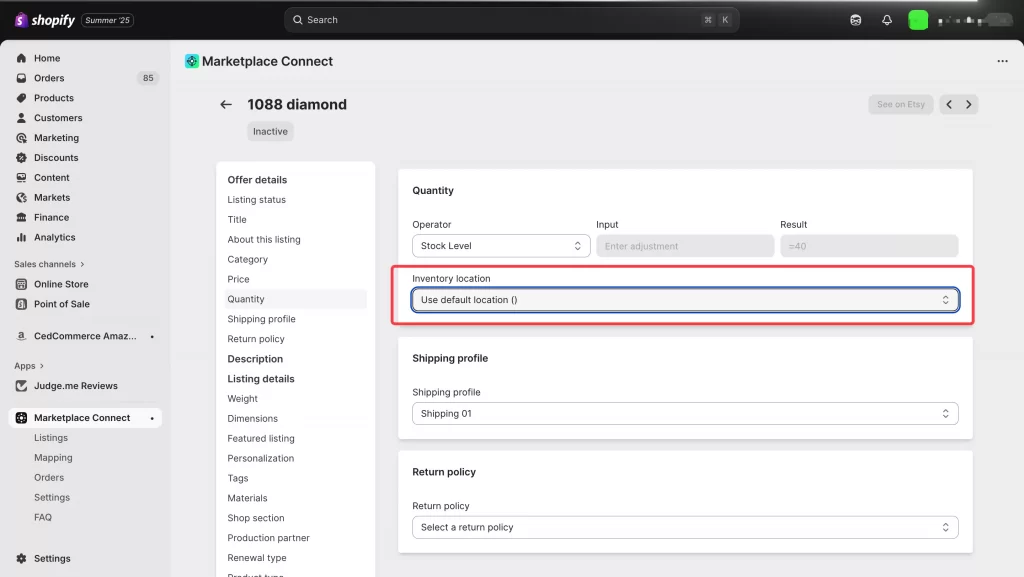
We can monitor our store’s performance using Shopify’s built-in dashboards, which include real-time data, customizable metrics, and standard reports like total sales, sessions by device, customer behavior, and more. The interface allows us to filter, customize visualizations, and create custom data explorations using ShopifyQL for deeper insights.
However, we’ve observed that Marketplace Connect doesn’t offer dedicated marketplace-level reporting. That means while we can see overall performance through Shopify, we don’t get segmented analytics specifically for transactions, conversions, or traffic coming from individual channels like Amazon or eBay within the app itself. To obtain that level of detail, we need to rely on broader Shopify metrics or external analytics tools.
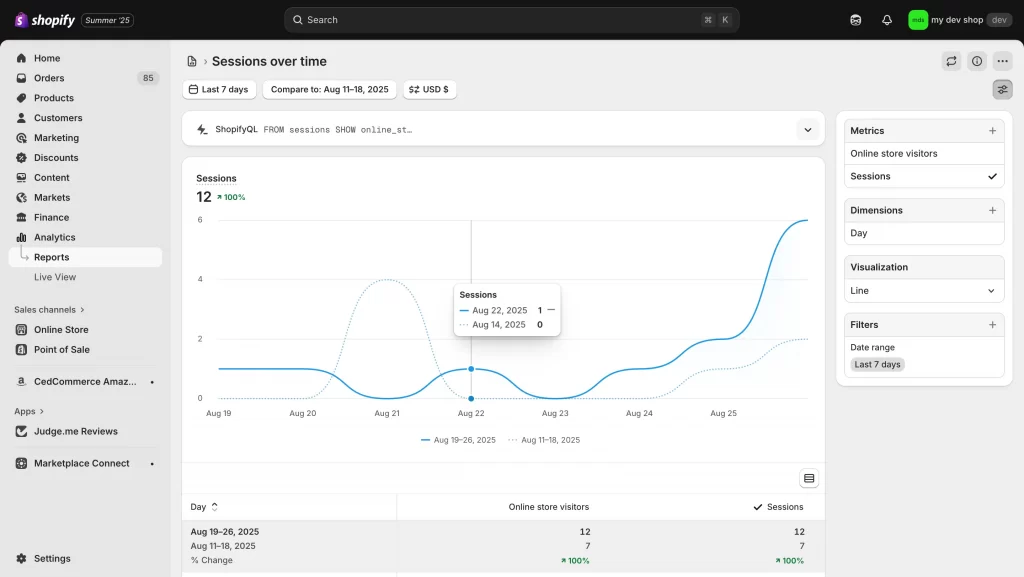
LitCommerce
In contrast, LitCommerce currently offers limited native analytics and reporting tools. While you can view key operational details—such as listing statuses, order sync progress, and inventory updates—the platform does not yet provide in-depth, visualized sales analytics or channel performance dashboards like you’d find in a full-featured reporting suite.
That said, we’re still able to track channel-specific activity, including the number of synced products, total orders by marketplace, and fulfillment status. Most of the sales and traffic data, however, comes from the connected eCommerce platform (like Shopify, WooCommerce, or BigCommerce). This means LitCommerce works best when paired with external tools or your store’s built-in reporting systems to get a full picture of performance
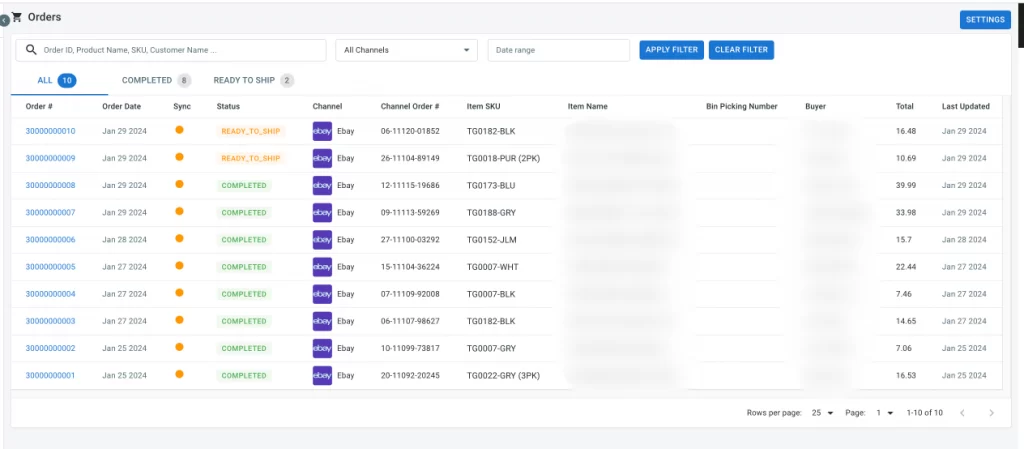
Winner: Well, we think Shopify Marketplace Connect wins this category for providing deeper, more integrated analytics—especially for sellers already relying on Shopify’s reporting ecosystem.
Round 8: Currency conversion
Some sellers may want to list and sell products in foreign countries, e.g., Your store currency is in USD, but you’ve listed on Amazon Canada.
Shopify Marketplace Connect
This app has a foreign currency management tool that allows you to list on overseas marketplaces where the local currency differs from that used for your Shopify store. tool that allows you to list on overseas marketplaces where the local currency differs from that used for your Shopify store.
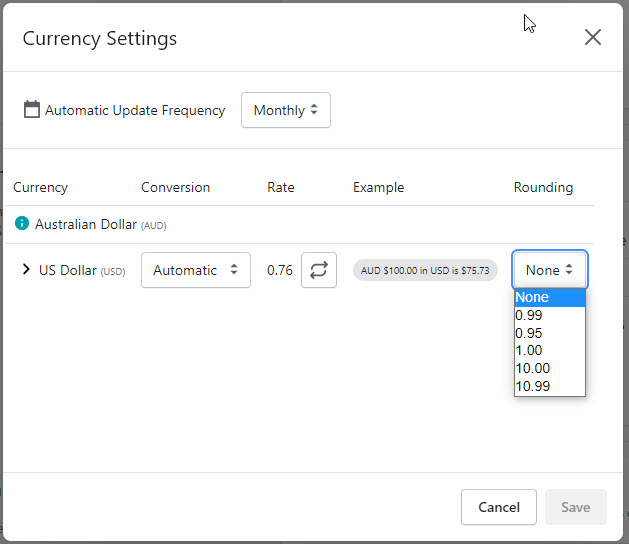
LitCommerce
LitCommerce allows you to automatically convert prices for products listed on channels that use a different currency from your main store. When enabled, the system will apply a real-time conversion rate between your store’s base currency and the target channel’s currency. You can also manually adjust this rate if needed, and it will remain fixed unless you update it.
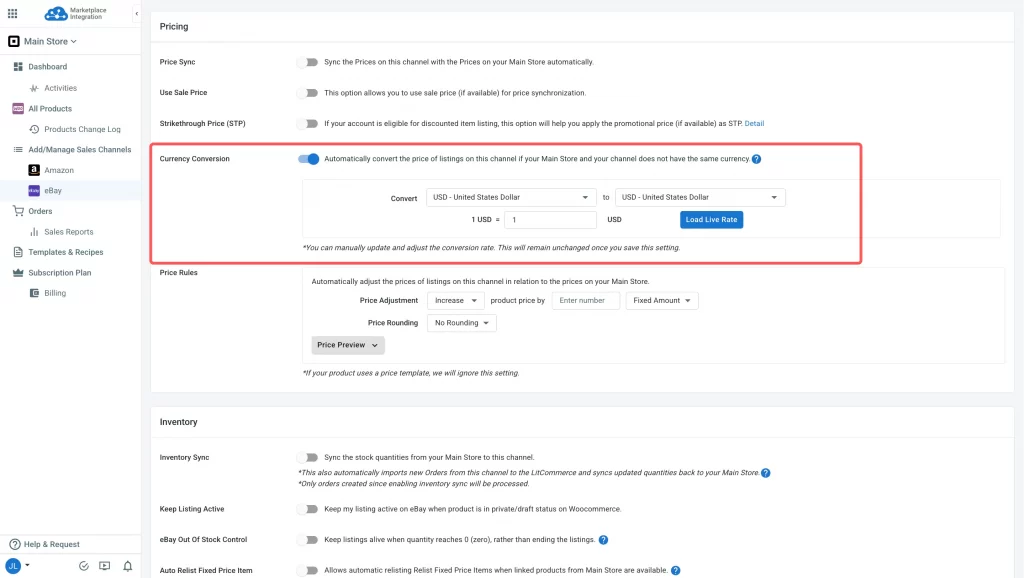
After the currency is converted, you can apply additional price rules—such as increasing or decreasing the price by a set amount or percentage, and applying rounding options for cleaner pricing. This feature ensures your prices are accurate, consistent, and tailored for each market, without requiring manual updates across multiple channels.
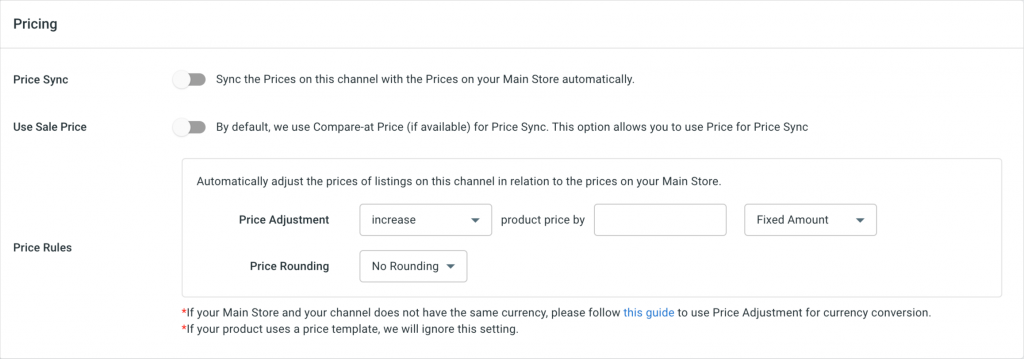
Winner: Both Shopify Marketplace Connect and LitCommerce support currency conversion for selling in international markets. However, LitCommerce offers more flexibility by allowing manual rate adjustments and post-conversion price rules, giving sellers greater control over localized pricing.
Round 9: Customer service
Regarding support, both have thorough knowledge bases that guide you through your setup process.
Both the app’s customers can receive their help via email and live chat. Overall, LitCommerce and Shopify Marketplace Connect’s customer service are considered friendly and helpful.
Shopify Marketplace Connect
This app support is delivered through Shopify’s general customer service channels, which include 24/7 live chat and email support, along with a comprehensive Help Center.
We’ve found that response times can vary, especially for Marketplace Connect-specific issues, and users sometimes report needing to navigate multiple layers of support to reach someone familiar with the app. Since Marketplace Connect is developed by Shopify, users do benefit from an integrated experience—but the level of specialized support for marketplace integrations may be limited, especially during complex setup or syncing issues.
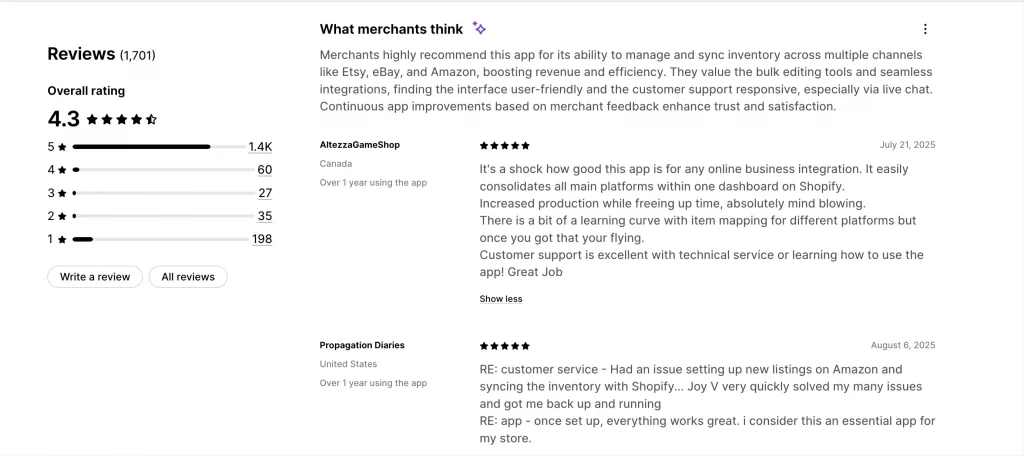
LitCommerce
LitCommerce offers a dedicated support team accessible through live chat, email, detailed usage documentation, and LitCommerce Academy tutorials. We appreciate that their support hours cover nearly 24/7 availability from Tuesday to Saturday (GMT+7), with extended support on Monday and Sunday:
- Monday: from 04:00 AM to 24:00 (GMT +7).
- Tuesday – Saturday: 24/7 GMT+7.
- Sunday: from 08:00 – 24:00 GMT+7.
According to reviews from the Shopify App Store and other platforms, LitCommerce is frequently praised for its fast response times, helpful walkthroughs, and hands-on assistance, especially during onboarding or sync setup.
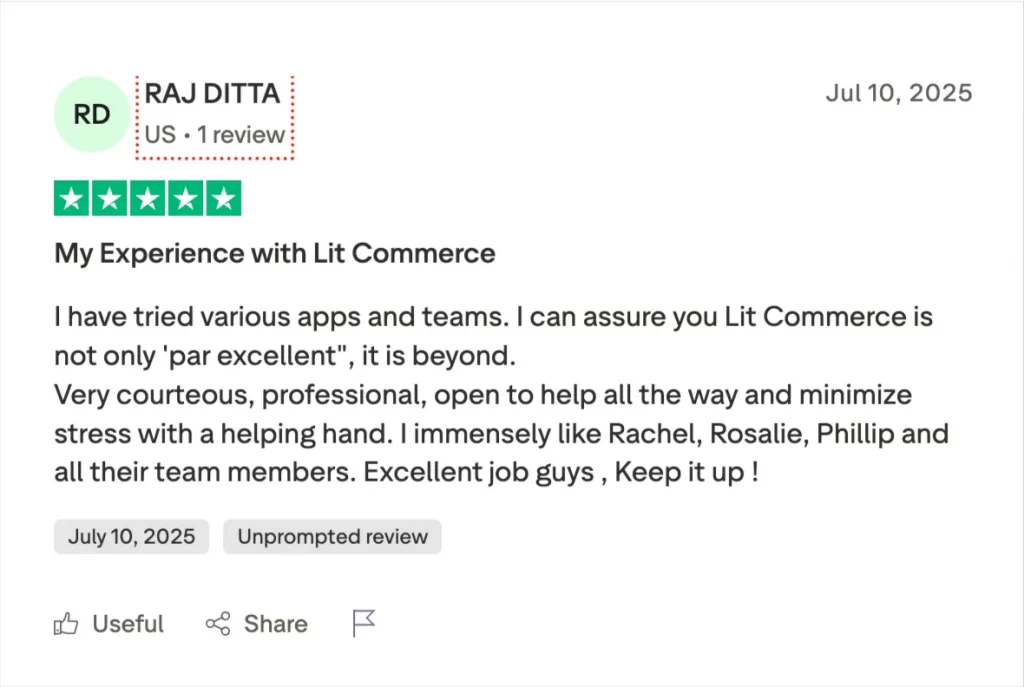
Winner: LitCommerce — for more accessible, responsive, and knowledgeable customer support tailored to multichannel needs.
Round 10: Customization service
Some multichannel listing tools offers customizable services for sellers wanting to:
– work on data that are not supported by default.
– have specific requirements/features that are not supported by default.
Shopify Marketplace Connect
SMC is a native app developed by Shopify, and as such, it offers limited customization options. We can adjust listing settings, set pricing rules, and map product attributes using Shopify’s existing metafields and configurations, but there’s no formal customization service available through the app itself.
For sellers with more complex needs—such as custom integrations, automation, or workflow adjustments—Shopify typically recommends using third-party apps, hiring a Shopify Expert, or developing solutions through its API ecosystem.
LitCommerce
LitCommerce provides a more hands-on approach when it comes to customization.
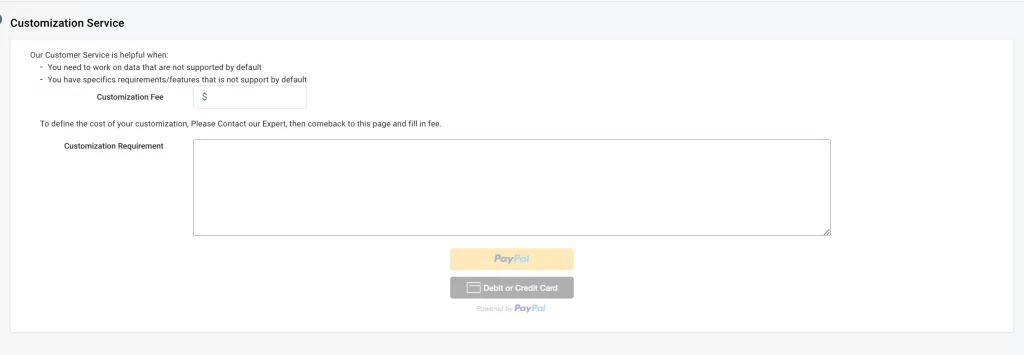
In addition to built-in flexibility like custom sync settings per channel, pricing rules, and listing templates, LitCommerce offers paid customization services for sellers with specific operational requirements.
You can request custom features, API connections, or workflow modifications directly from their team. This makes it a more adaptable choice for businesses with unique selling processes or niche marketplace needs.
Shopify Marketplace Connect hasn’t had this feature just yet.
Winner: For these reasons, LitCommerce won this round by a mile.
LitCommerce vs Shopify Marketplace Connect: The Final Call
LitCommerce is a strong option for businesses looking to scale across multiple sales channels with flexibility and control. It offers a wide range of features—like listing templates, customizable sync settings, and broader marketplace support—making it especially valuable for sellers managing larger catalogs or operating outside the Shopify ecosystem. For growing businesses that need customization and hands-on support, LitCommerce stands out.
Shopify Marketplace Connect, on the other hand, is a convenient choice for sellers who are fully invested in Shopify and selling on a few major marketplaces. It works well for basic listing sync and centralized order management, particularly at lower volumes. Overall, LitCommerce offers more flexibility and advanced features, while Shopify Marketplace Connect is better suited for simplicity within the Shopify environment. We hope this comparison helps you decide which solution best fits your multichannel selling needs.

